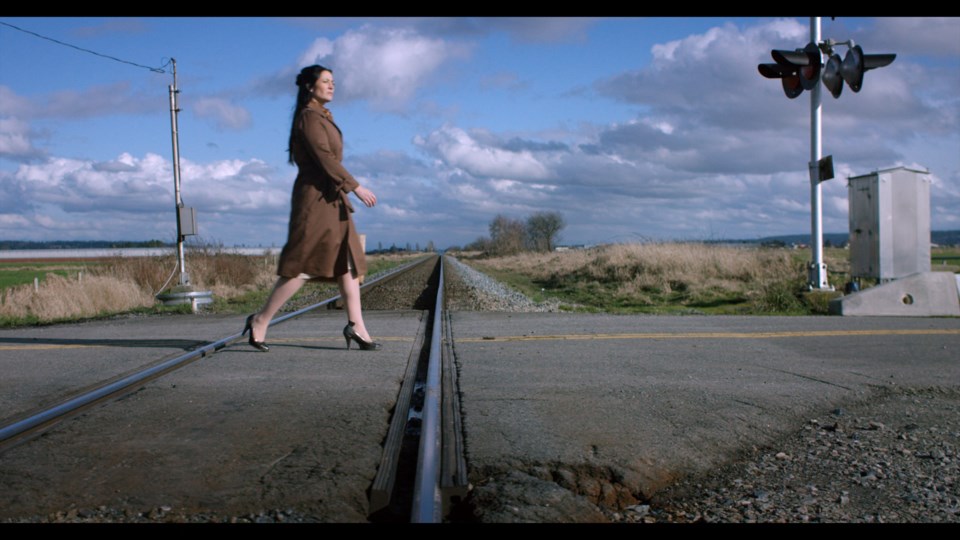Every so often, a filmmaker will encounter a story that compels them to rethink how stories are told.
The story might be so big, or so nuanced, or so potentially affecting, that conventional methods of storytelling just won’t cut it – and so the filmmaker will craft a new way to get its message out, and change the landscape of film in the process.
The history of film is paved with such story-driven innovations (from Star Wars: A New Hope to Avatar), and Marie Clements’ documentary The Road Forward – which shines a light on First Nations activists of the past, present, and future – represents a bold step in a new direction for documentary film.
Clements bypasses traditional documentary conventions – interviews with talking heads; archival footage; graphs and charts – to tell the interconnected stories of The Native Voice (Canada’s first Indigenous-run newspaper, which was published out of Vancouver from the late 1940s and into the 1960s), the Native Brotherhood and Sisterhood of BC (a loose affiliation of West Coast tribes cooperating to secure aboriginal rights during a time when it was illegal for Native people to meet and organize), and the Constitution Express, a movement led by George Manuel that culminated in a 3,000-mile trip to Ottawa to impress the case for Indigenous rights on then-Prime Minister Pierre Trudeau.
To bring these stories to the screen (as well as those of residential schools and the Highway of Tears), Clements – a North Vancouver filmmaker whose work includes the award-winning 2015 docudrama Number 14, about a young hockey hopeful who dies in a tragic car crash, and the 2013 short drama Pilgrims, which screened at TIFF and the Cannes Market – opted for a mix of rousing story-songs, blistering reenactments, and oral testimony, soaring through time and musical genres (rock, blues, hip hop, and traditional beats) to connect the Indian Nationalism movement of the 1930s with the grassroots First Nations activists of today.
The Road Forward is somehow breathless and epic and intimate all at once – but Clements mainly wants audiences to feel like they’re reading a newspaper. “It’s a personal experience because each of us goes into headlines and stories and pictures that we’re caught by, and I wanted to create that experience for the viewer,” Clements explains, during a recent phone interview. “You’re going through the newspaper and you’re getting a sense of urgency or a sense of movement or a sense of excitement or anger or curiosity about each story or headline.”
The Road Forward premiered at Toronto’s venerable Hot Docs Festival before kicking off the 2017 DOXA Documentary Film Festival this past spring. This week, it returns to Vancouver for an extended run at VIFF’s Vancity Theatre.
The project began in earnest back in 2010, when Clements was tasked with developing a 10-minute live theatrical piece for eight performers for the closing ceremonies of the Aboriginal Pavilion during the Winter Olympics. As she conducted research for the piece, she came across an issue of The Native Voice – a moment that ultimately led her deep into the archives of the Native Fishing Association, and face to face with 70 years of largely forgotten activist stories.
“[I had] never known that there was a newspaper called The Native Voice,” Clements says, “and I didn’t know that Native activists had founded it and became editors and writers of stories.” The Native Voice employed news stringers from across Canada and the United States who “shared their realities,” she marvels. “For me, it was quite extraordinary to read articles at points in history that came from a Native perspective, and also one that was very strongly represented by women.”
After the performance premiered at the pavilion, Clements was haunted by “this feeling that there was so much more to express and go back in on.” Clements and her collaborators wrote another 16 songs “based on headlines and stories that had really sparked something in me or inspired something in me to go into the story further.”
In 2015, The Road Forward premiered as a full-length theatrical show at the PuSh Festival. The documentary film version – shot in Greater Vancouver and produced by the BC & Yukon Studio of The National Film Board of Canada – features an original score by Wayne Lavallee, and a powerhouse ensemble that includes Jennifer Kreisberg, Michelle St. John, Cheri Maracle, Ostwelve, Murray Porter, Russell Wallace and Shakti Hayes.
Clements’ ultimate goal with The Road Forward is to inspire change in its audiences, as she was inspired by the stories she read in The Native Voice. “I definitely was inspired by the subjects in The Road Forward, by their activism that not only included men but women and families who were fighting for a better reality that included human rights and social rights and environmental rights.”
• The Road Forward screens July 14-20 at VIFF Vancity Theatre. On July 14, Reel People will moderate a post-screening Q&A featuring Marie Clements. Tickets at viff.org.


